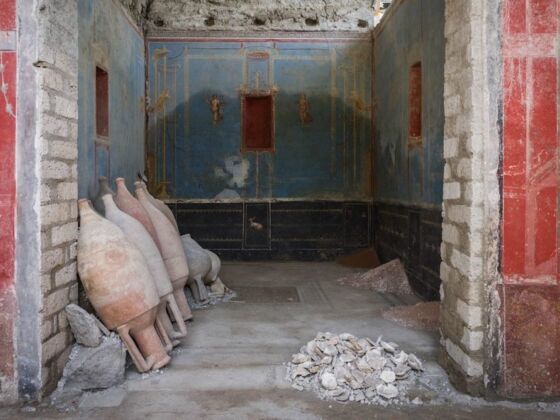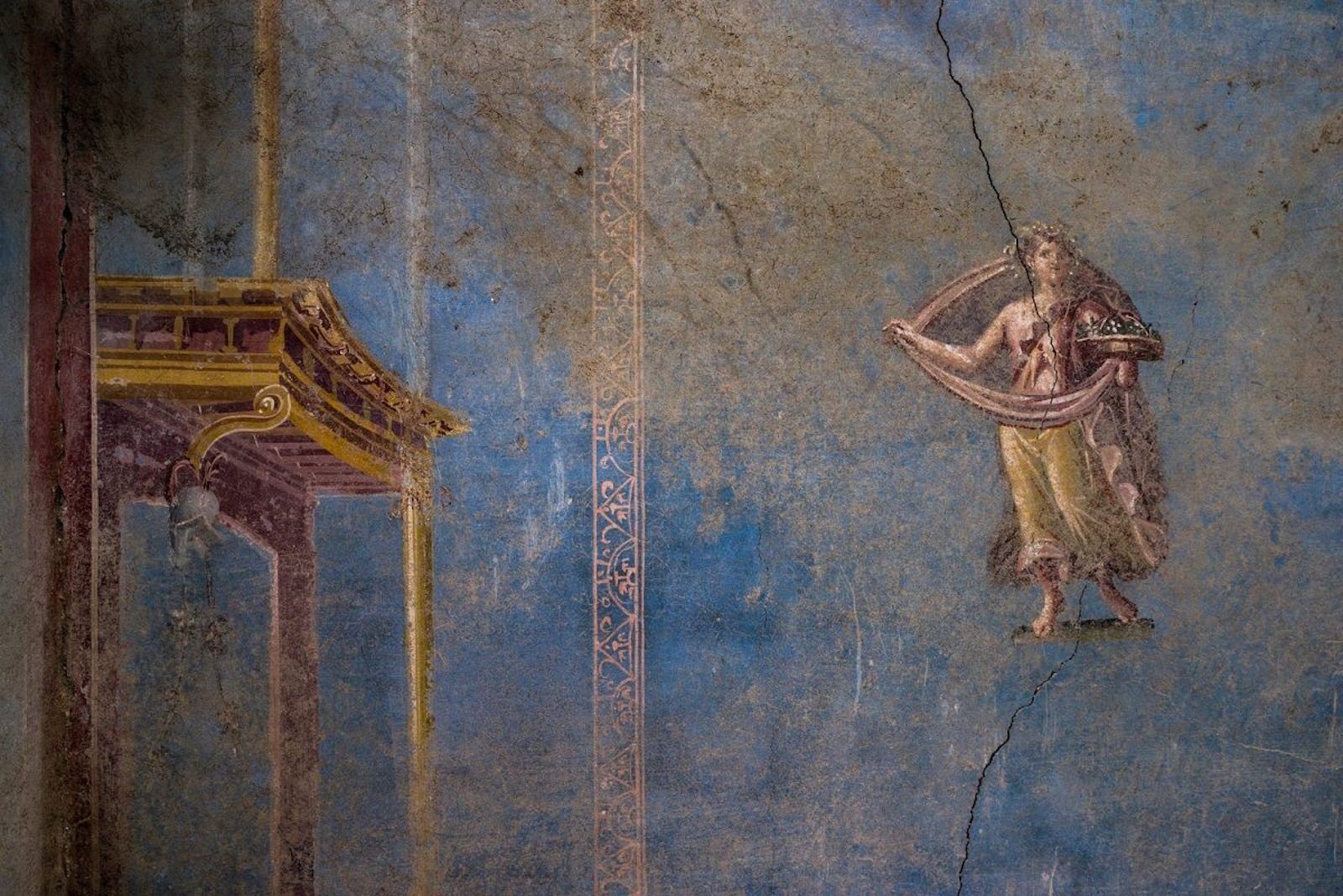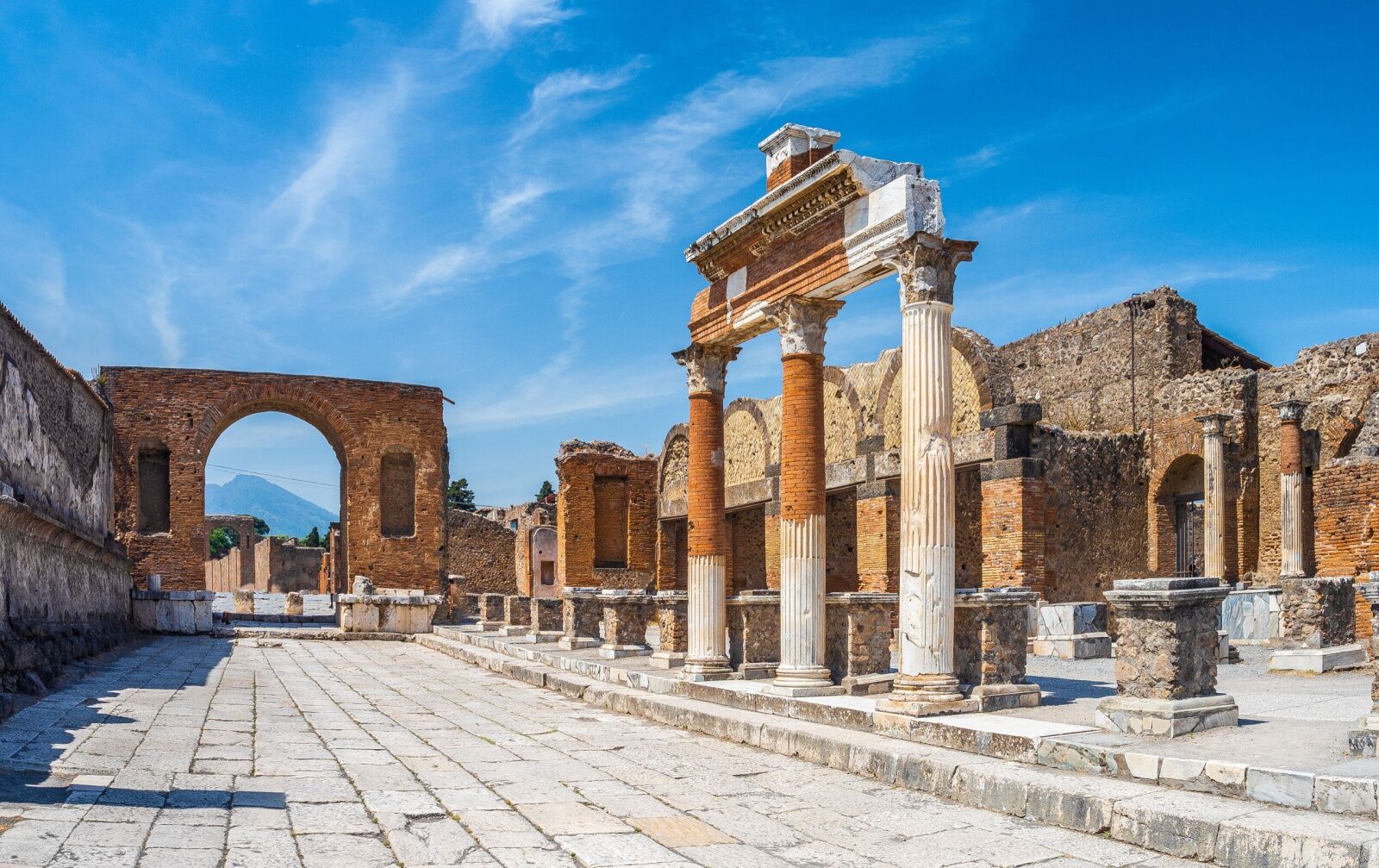Archaeologists recently made a significant discovery at one of the world’s most-excavated and well-known ruins.
The discovery was recently announced by the Italian Ministry of Culture in late May. The small room was discovered in a never-before-excavated section of Pompeii called Regio IX, one of nine districts within the modern-day, 163-acre site. The newly found room “has been interpreted as a sacrarium, a shrine devoted to ritual activities and the storage of sacred objects,” writes the official release, and shows a representation of one of the four season on each of the corners.


